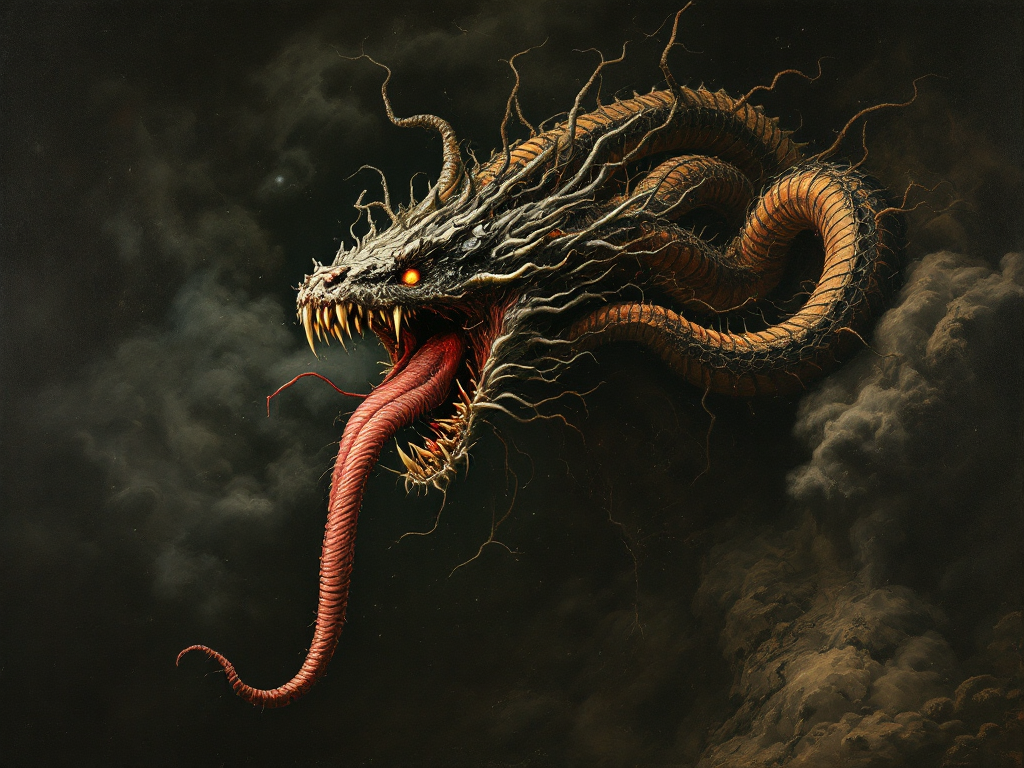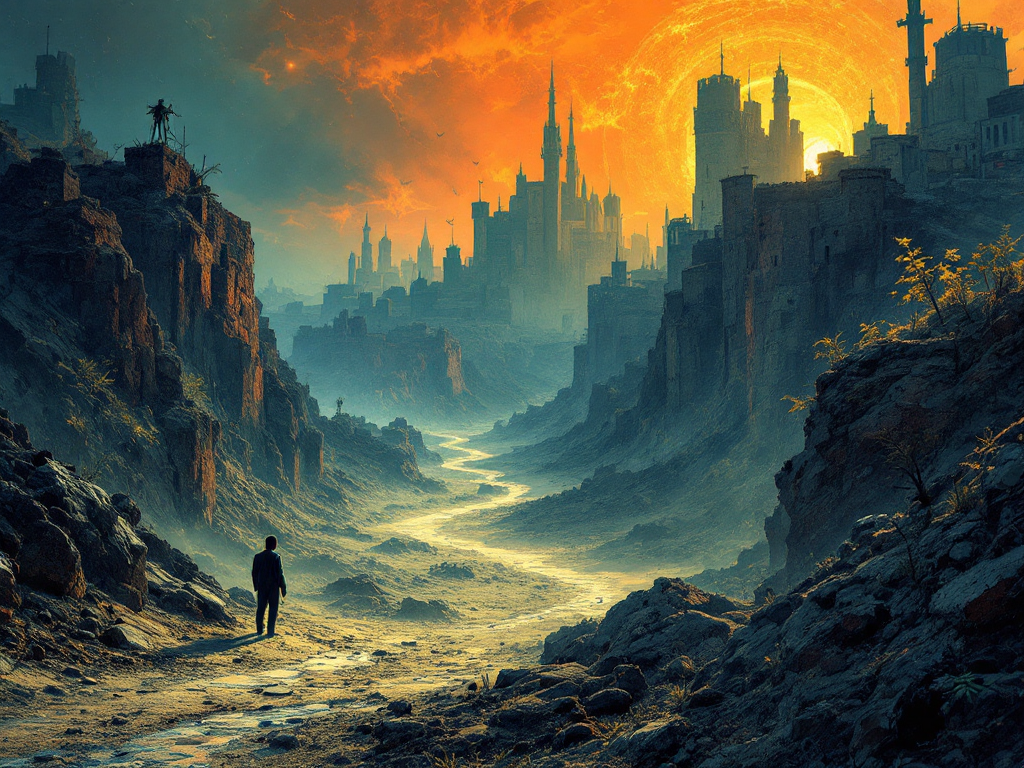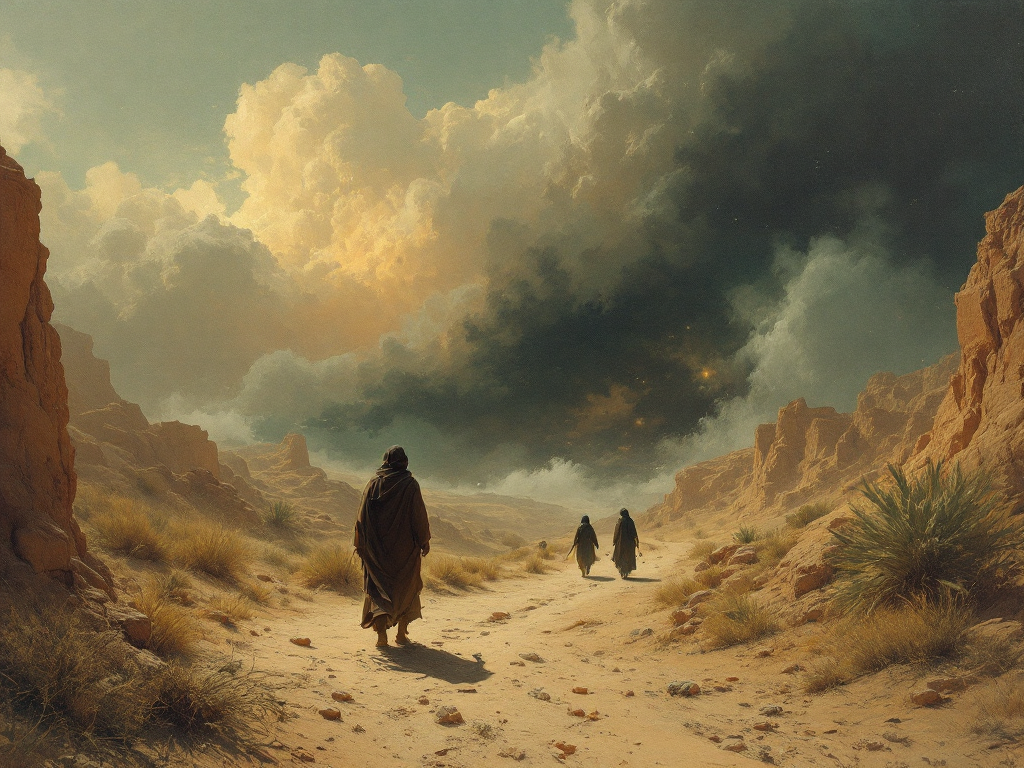We speak of revolutions—of machines that think, that speak, that create—these digital phantoms we have christened with names as if they were gods: ChatGPT, Gemini, Claude. Yet as I have sauntered through the hearts of what petty men call progress—through the sprawling cities of America, Canada, Brazil: these British Isles — I perceive that these 'artificial' intelligences are mere shadows dancing on the wall of our cave. Vast shadows, perhaps, terrifying in their reach, yet possessing no more substance than the darkness between stars. No more or less than the moment between heartbeats. The true horror lies not in the shadow but in the thing that casts it—that monstrous apparatus of control that has wrapped itself around the throat of our age like some primordial serpent.

The old internet—that river of information we once navigated with such hope—has become a dead thing, its waters poisoned at the source. Google, that great monopolist of knowledge, watches its empire crumble grain by grain, like sand through fingers that can no longer close. We believed, in our innocence, that we had parceled out the digital world—Google for search, Facebook for the illusion of connection. But then came the betrayal, as betrayals always come, wrapped in the language of progress and efficiency.

These platforms—these vast machines of extraction—they have mined from us everything of value, leaving us hollow as drums. Trust was our offering, and they repaid it with systematic plunder. We are like children passed between cruel masters, each taking what they desire before casting us to the next. A dark comparison, you say? But darkness is where we must look if we are to understand the nature of our captivity.
Consider this: the great mass of our tabletop machines still genuflect before Microsoft's altar, all over this world, bound to Windows like serfs to the land. And, that ancient leviathan, showed the others the way - how to transform tools into chains, how to make subscription a form of bondage, how to clothe theft in the language of service. Google followed, promising clarity, delivering only new forms of the old confusion.
Thirty years—merely thirty years since this dream began its transformation into nightmare. And what have these titans given us? Forms to complete, endless forms, each one a small death of the spirit. We were promised cyberspace—that crystalline vision of pure information, untainted by the grubbiness of commerce. Instead, Zuckerberg, Musk, Jobs, Gates, Page, Brin—these names that history will remember with either reverence or revulsion—they took that promise and corrupted it at its source.
The poison they introduced does not merely corrupt their balance sheets and algorithms. No, it seeps into the very bones of knowledge itself, into the words we use to understand our world. They know us better than we know ourselves—this is their boast and our doom. They seek not merely to observe but to possess, to direct, to wear down our resistance through endless mazes of their own devising. We are made to feel perpetually incomplete, perpetually behind, perpetually in need of what they offer.

The old web is dead. What remains is something far older in its essential nature—a feudalism dressed in silicon and glass, where power concentrates in ever fewer hands while the many scramble for scraps of attention and meaning. The very language buckles under the weight of lies it must carry. Originality dies. Morality becomes quaint. Bravery, an impediment to progress.
"Look at what I possess," they tell us. "Envy me, or be nothing."

